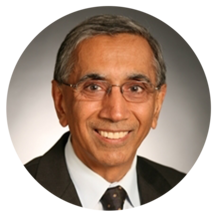About this Presentation
The Thinking Processes are an amazing set of strategic analysis tools and can produce great breakthroughs and results. However, they have often been viewed solely as strategic tools, reserved for a Jonah and a couple of senior executives to analyze an entire business. Yet, a strategy is of little use without effective execution. These tools offer the skills necessary for the entire corporate hierarchy to swiftly implement strategy and resolve operational conflicts and decisions, ensuring the strategy's effectiveness
What Will You Learn
To help you get the most value from this session, we’ve highlighted a few key points. These takeaways capture the main ideas and practical insights from the presentation, making it easier for you to review, reflect, and apply what you’ve learned.

Prussian military tactics, which emphasize the importance of decision-making at the ground level, can be applied to business contexts. The underlying concept is that the person on the ground often knows more about how to achieve an objective and take the appropriate actions than those in high command or planning control.
Effective decision-making in business requires a balance between strategic and operational decisions. Strategy needs to be implemented across the organization, and operational decisions should support or enhance the strategy. This can be achieved by training employees at all levels in TOC tools, which can enhance their decision-making skills and foster a culture of trust within the organization.
It is crucial to create a safe environment for employees to use TOC tools without fear of reprimand. Even if the outcome of tool use is not ideal, employees should not be punished. Instead, they should be encouraged to learn from the experience and improve their decision-making skills.
Instructor(s)
Peter Cronin
Peter is the head instructor of the Black Belt in Thinking (Thinking Process training course). Even after a decade of teaching others how to use these critical thinking tools, he is still endlessly fascinated by the innovative ways people think and learn. Whether they are leaders, business owners, entrepreneurs, or individuals, Peter’s passion is seeing and helping people create real solutions to what they thought were ‘unbreakable’ problems.

Ms Alka Wadhwa
Alka Wadhwa is an experienced consultant and process improvement expert with over 24 years of expertise in the Theory of Constraints (TOC), Lean Six Sigma, and organizational performance optimization. She has successfully led projects in healthcare, financial services, and manufacturing, driving significant improvements such as a 67% boost in hospital operations and a 140% increase in outpatient visits.
Previously, Alka Wadhwa spent 17+ years at GE Global Research Center, where she led initiatives to enhance various GE businesses through advanced technologies, process redesign, and system optimization. Founder of Better Solutions Consulting, LLC, she specializes in using TOC, Six Sigma, and data analytics to streamline operations and build high-performance teams.
Her work has earned her multiple accolades, including the Empire State Award of Excellence in healthcare.

Dr Gary Wadhwa
Dr. Gary Wadhwa is a Board Certified Oral & Maxillofacial Surgeon with extensive experience in the field. He completed his Oral & Maxillofacial Surgery training at Montefiore Hospital, Albert Einstein College of Medicine in Bronx, NY, and has served as an Attending at prestigious institutions like St. Peters Hospitals, Ellis Hospital, and Beth Israel Hospital in NY. With a career spanning over two decades, he was the former CEO and President of a group specialty practice in NY from 1994 to 2015. Dr. Wadhwa holds an MBA from UT at Knoxville, TN, and has undergone additional training in System Dynamics at MIT, Health System Management at Harvard Business School, and Entrepreneurship and healthcare innovations at Columbia Business School. Committed to expanding access to Oral & Maxillofacial Surgery care, he is currently engaged in a meaningful project to provide healthcare services to underserved populations in inner city and rural areas through non-profit Community Health Centers.
